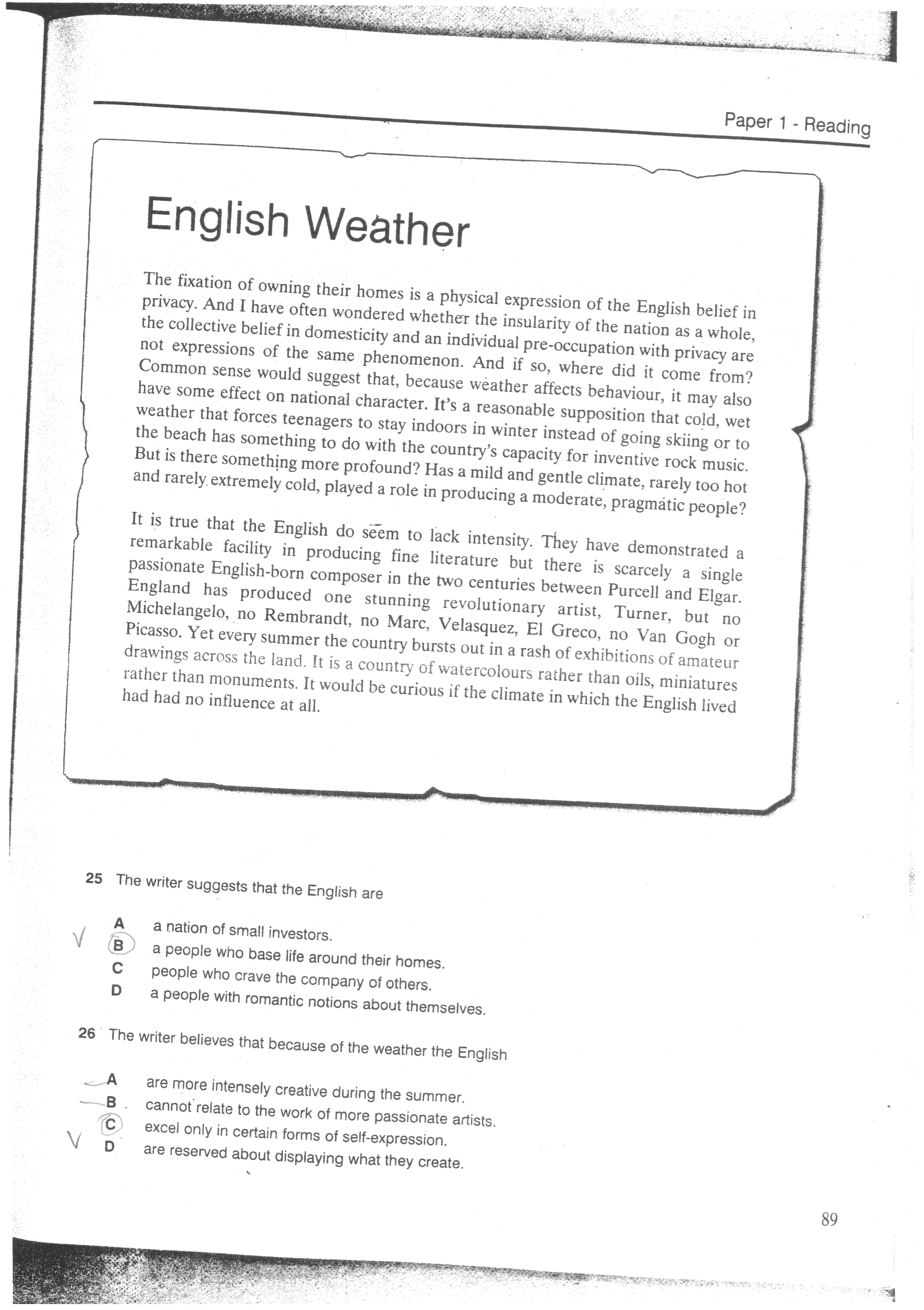czytanie teksty (17)


Paper 1 - Reading

English Weather

The fixation of owning their homes is a physical expression of the English belief in privacy. And I have often wondered whether the insularity of the nation as a whole, the collective belief in domesticity and an individual pre-occupation with privacy are not expressions of the same phenomenon. And if so, where did it come from? Common sense would suggest that, because weather affects behaviour, it may also have some effect on national character. It’s a reasonable supposition that cold, wet weather that forces teenagers to stay indoors in winter instead of going skiing or to the beach has something to do with the country’s capacity for inventive rock musie. But is there something morę profound? Has a mild and gentle climate, rarely too hot and rarely. extremely cold, played a role in producing a moderate, pragmatic people?
It is true that the English do seem to lack intensity. They have demonstrated a remarkable facility in producing fine literaturę but there is scarcely a single passionate English-born composer in the two centuries between Purcell and Elgar. England has produced one stunning revolutionary artist, Turner, but no Michelangelo, no Rembrandt, no Marc, Velasquez, El Greco, no Van Gogh or Picasso. Yet every summer the country bursts out in a rash of exhibitions of amateur drawings across the land. It is a country of watercolours rather than oils, miniatures rather than monuments. It would be curious if the climate in which the English lived had had no influence at all.

25 The writer suggests that the English are

a nation of smali investors. a people who base life around their homes. people who crave the company of others. a people with romantic notions about themselves.
26 The writer believes that because of the weather the English
^A are morę intensely creative during the summer.
-—B . cannot relate to the work of morę passionate artists.
C excel only in certain forms of self-expression. i D are reserved about displaying what they create.

89
Wyszukiwarka
Podobne podstrony:
czytanie teksty The Futurę of ReadingGeorge Steiner It is hardly necessary for me to cite all the ev
czytanie teksty (2) George Steiner “The Futurę of Reading 1. Paraphrase the meaning /give synonyms o
czytanie teksty (6) WTió 1 398 Chnptcr (I Argiimcntaiioo and Pmuasion may nappen to sec it. But to t
czytanie teksty (10) and attitude is such as to produce a morę or less exact resemblance to some one
czytanie teksty (16) 34 What main point does the reviewer make about Other Side of Eden in the first
czytanie teksty (8) Aristotle argued that the mother contributes the sub-stance and the father the s
czytanie teksty the story of an hour 2 that she would weep again when she saw the kind, tender han
czytanie teksty (13) re are exceptions to the rulc of małe insects being r than the females. and som
czytanie teksty (3) Kate Chopin The Story of an Hour Knowing that Mrs. Mallard was afflicted with a
czytanie teksty (4) Kate Chopin, The Story of an Hour 1. Mrs. MallarcTs reaction t
więcej podobnych podstron